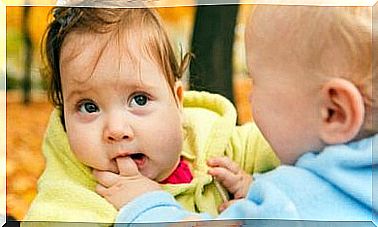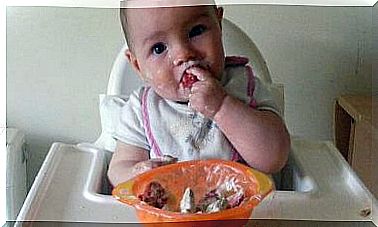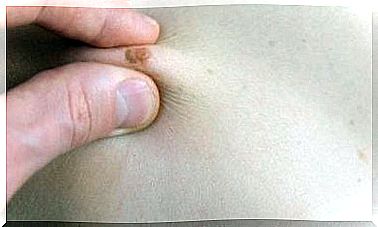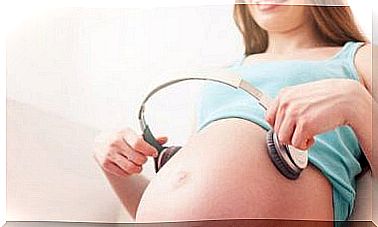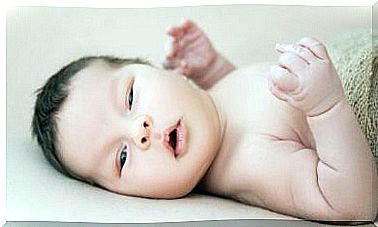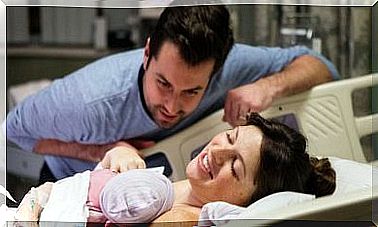Nausea And Vomiting During Labor

Vomiting during childbirth is common in some women. In most cases, this happens without warning. What do you need to know about this?
It is important to know that vomiting during labor is caused by various factors such as hormone changes or even vaginal examination during labor. There are many ways to control nausea and vomiting. In this article we will tell you more about it.
Studies confirm that vomiting is a common experience not only during labor, but throughout pregnancy. In fact, it affects about 70-80% of all pregnant women.
While most women who experience nausea and vomiting during pregnancy experience these symptoms in the first trimester, a small percentage of women have these symptoms all the way up to delivery.
Fatigue and dehydration
Often pregnant women feel exhausted by vomiting. Physical fatigue and dehydration can have a direct impact on their emotions. Feelings of frustration, the desire to give up, fear and confusion can arise. This can affect the way they handle the delivery.
If dehydration occurs as a result of vomiting, the woman’s body will physiologically struggle to get through the entire process. In general, this can cause labor to slow down and even stop, due to ketosis.
And we often hear everyone talk about morning sickness during pregnancy, but no one mentions that nausea and vomiting are also often present during labor itself, along with the painful contractions.
Plus, pain isn’t the only factor that can make you feel nauseous. An epidural can also induce vomiting during labor if your blood pressure drops suddenly.
Regardless of the cause of the vomiting, the most important thing to do is stay hydrated.

What are the causes of vomiting during childbirth?
1. Restricted Food Intake
Some women feel hungry and thirsty during labour, especially during the initial stages. Food is especially important during early labor as it provides the energy you need during the active phase.
In addition to stressors, limiting your food intake during labor can cause dehydration and ketosis. This happens when the body starts to burn fat to get energy from it.
2. Dehydration from vomiting too much during labor
During labour, you should make sure to drink your usual amount of water or even more. Dehydration is probably the leading cause of vomiting blood during pregnancy and childbirth.
Keep in mind that if your body doesn’t have enough fluids, it will make you nauseous. The lack of fluid creates excessive pressure and you vomit bile and blood.
3. Medication
Some painkillers given during labor and the anesthesia used can also cause vomiting.
Keep in mind that when women receive their dose of medicine or if they are unconscious, they cannot control their breathing and swallowing. This will make you throw up faster.
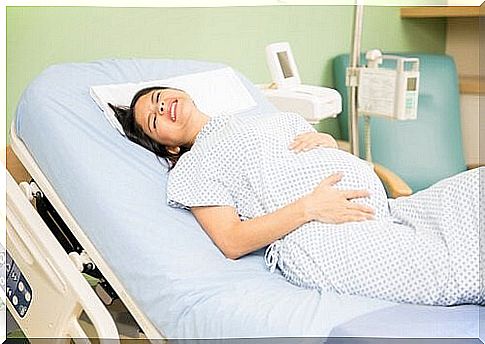
4. Some foods and drinks
In some cases, certain foods and drinks can cause vomiting during labor. If so, focus on drinking water instead of juice and foods like soup and bananas.
In addition, vomiting can reflect hidden fears and worries. When strong emotions are present during childbirth, it can also have a major impact on you physically. Try to identify and resolve your concerns beforehand.
Finally, to reduce vomiting, remember to eat light foods during the early stages of labor. Then during the active phase it is best to drink only liquids.
